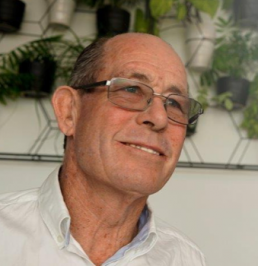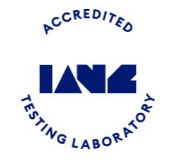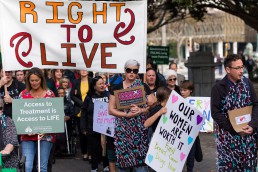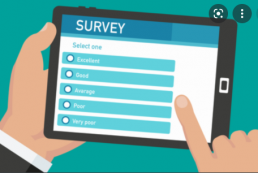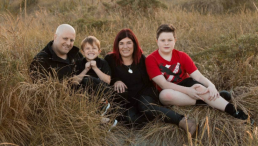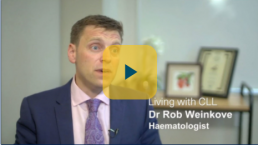CLL Advocates November Newsletter
November Newsletter - Neil Graham
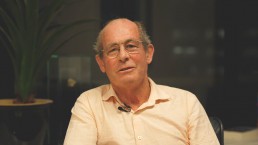
Dear Friends of CLL Advocates NZ
We were deeply saddened to report to you last month that our Founder and Executive Director Dr Neil Graham passed away on November 15. Neil was the driving force and inspiring leader behind CLL Advocates and gave an enormous amount of his time and professional expertise to establishing the organisation and advocating for the interests of CLL patients. We miss him greatly.
As a physician and CLL patient himself, Neil gave a great deal of personal time to talking with and meeting CLL patients who had made contact through the private Facebook page, especially people who had been newly diagnosed. We know from their feedback that this was greatly appreciated. Neil also maintained a persistent and consistent focus on getting better treatments for CLL patients, regularly engaging with Pharmac officials, petitioning and making submissions to Parliament, appearing before the Health Committee and the Pharmac Review Panel and engaging with media.
Neil felt strongly about improving public understanding of CLL and providing better information for people living with it, and was able to put together a dedicated CLL patient information booklet through forging a very productive collaboration with a UK blood cancer advocacy group. In the same vein he developed a relationship with the international CLL patient group CLL Advocates Network resulting in our organisation becoming one of the first 9 members of what is now a 34 member country network sharing information and resources on CLL.
You may recall in his last (October) newsletter Neil asked for feedback on our activities and in particular any offers of help with any of our work. If you are able to volunteer any time even for small tasks, this would be greatly appreciated, especially as we move into this new era, without Neil at the helm.
You can contact us at info@clladvocates.nz.
With best wishes
CLL Advocates Trustees
SARS-CoV-2 IgG Serology Testing
SARS-CoV-2 IgG Serology Testing
Please note effective 14th June, SARS-CoV-2 IgG serology testing will be available at Pathlab.
This assay can potentially be used to assess vaccine response and to detect previous infection.
This is a quantitative IgG assay performed on the Abbott Alinity platform. However, as it is still not clear exactly what level of antibodies confers reliable protection against COVID-19 post-vaccination, we will report positive and negative IgG results in a qualitative manner in the first instance, along with qualifying comments as below:
Positive “IgG antibodies to SARS-CoV-2 spike protein DETECTED. This result indicates prior exposure to SARS-CoV-2 or vaccination. Antibody levels peak approximately 2 weeks after infection or second dose of vaccine, with variable duration of measurable antibody. The presence of antibodies is likely to be associated with current protection from symptomatic COVID-19 infection, but a true serological correlate of protection has not yet been established.”
Negative “IgG antibodies to SARS-CoV-2 NOT detected. A proportion of mild cases of COVID-19 do not produce durable antibodies. The presence of antibodies is likely to be associated with current protection from symptomatic COVID-19 infection, but a true serological correlate of protection has not yet been established. Absence of measurable antibodies after vaccination does not necessarily imply lack of immunity.” Please ensure relevant clinical history and COVID-19 vaccination status (including date of vaccination) is on the request form.
Please note – this assay is not currently funded so the patient will be charged.
This test must be requested by a clinician and is not currently available by self-request.
Request for Feedback - October Newsletter
October Newsletter - Request for Feedback
Dear Friends,
Our monthly newsletter has now been going for a year and a half, and I’d like to hear back from you on what you think of it, and how you think we could improve it and make it as useful as possible. I’d also like to have your feedback on some of our other activities, and whether they’ve been useful to you, and your thoughts on some questions we are currently working on. In particular, I’d really appreciate an email at Neil@clladvocates.nz on all or any of the following:
Choice of topics so far, format, and topics you would like addressed in future editions. Suggestions for expanding the readership, and anything you may be able to contribute to this.
We are closing in on the “100” milestone, but there are at least 2,000 NZers with the condition, many of whom would benefit from what CLLANZ has to offer them, as would their friends and families. Please think about how you could assist with this.
Are there comments/suggestions regarding our website – content, usefulness, additional material you would like to see? How can we extend subscribers and visitors to the site?
- Research
We have another summer studentship getting underway this coming summer, a study on how many NZ CLL patients are taking ibrutinib, and questions about access, funding, response monitoring etc. This is the second we have undertaken, with funding from the Bay of Plenty Medical Research Trust. Do you have ideas on research projects we could consider for next year’s scholarship?
We would really like to expand this section. Please consider telling us yours, which you are welcome to do anonymously.
Have you read it and do you find it useful?
- Focus groups
Would you be interested in taking part in an online focus groups to discuss what would be the most useful support we could provide for you as a CLL patient or family/friend. CLL related questions?
- Clinician-led webinars/ Q&A or small group discussion sessions
Would these be of interest? I know that some informal groups that have been formed through connections on our Facebook page.
- Advocacy activities
Hopefully you’re aware of our various advocacy activities. These have included significant engagement with Ministers, Members of Parliament, the Health Select Committee, Pharmac and other relevant government health agencies, the Pharmac Review Panel, other patient advocacy groups, submissions, seminars, presentations, petitions and marches. Do you think this work is useful? Are you interested in taking part?
- Succession planning & volunteer help
Recently, two of the key CLLANZ drivers became unwell at the same time, and there was a period where CLLANZ ground to a standstill. If we had some volunteers willing to step up to temporarily covering roles at these times, that would be helpful.
On that note I’d like to record that my own health has deteriorated significantly, and I will need to pass the CLLANZ baton to someone willing and in a position to take this on. If you’re interested or have a suggestion for someone suitable, please do email me at Neil@clladvocates.nz
Thank you for your support and encouragement over the past few years.
Best wishes,
Neil Graham
Media release: Where is the Pharmac Review Panel's Report?
Where is the Pharmac Review Panel's Report?
12 October 2021
For immediate release
MEDIA RELEASE
WHERE IS THE PHARMAC REVIEW PANEL’S INTERIM REPORT?
Patient advocacy groups and clinicians are calling out the Pharmac Review Panel for failing to get their interim report out on time. The report that was due on 20 August is still not available seven weeks later. The “delay” has been attributed to lockdown (which began on August 18).
Dr Neil Graham is executive director of one of the many patient advocacy groups who, along with clinicians and medical specialist groups, went to great lengths and effort to contribute to the Panel’s work. He said many individuals and groups had appeared before the committee or attended their workshops, and large numbers put in very substantial submissions.
“For voluntary, patient-based organisations to produce and deliver this material within the very short time frame set by the Panel, was in itself a significant effort,” said Dr Graham.
“Somewhat ironically, Pharmac’s lack of transparency and timeliness around their processes for considering urgently needed, currently unfunded, life-saving medications, was one of the key issues raised by submitters.
“Failure on the part of the panel to deliver its report on time without a credible excuse is simply not good enough,” said Dr Graham.
Dr Graham noted that the absence of action on the Pharmac review coincides with a new Colmar Brunton survey showing that New Zealanders have little faith that they can access medicine.
ENDS
For further information, contact:
Neil Graham FRACP, FRCP
Executive Director
Chronic Lymphocytic Leukaemia (CLL) Advocates New Zealand
021 223 4038
neil@clladvocates.nz
http://clladvocates.nz/
CLLANZ Newsletter September 2021 - Learn the latest international developments in CLL treatments
CLLANZ Newsletter September 2021 - Learn the latest international developments in CLL treatments
Dear Friends,
I hope you’re well.
Learn the latest international developments in CLL treatments
One of the few positives that have come out of the Covid pandemic is the ability to attend high value international conferences without having to travel or pay! The international CLL Advocates Network (CLLAN) of which we are a member is holding its annual CLL Horizons Conference online on 5 – 7 November.
This will be a great multidimensional update on CLL, with contributions from leading international CLL specialists and researchers, patients and many other individuals and groups. I strongly recommend that you register for this year’s one. I attended and presented at their Edinburgh conference in 2019 and am also on a panel on this one. We’re not sure yet how many delegates we can have attend free of charge, but will clarify this and let you know.
Details of the programme and how to register, are all here on our website, and you can send any questions to info@clladvocates.net
Contribute to a global leukaemia patient experience Survey
Another collaborative project CLLAN is supporting is a global survey to help us understand the key issues, experiences and unmet needs for leukaemia patients, covering CLL, AML, ALL and CML. This is a very valuable initiative and I warmly encourage you to take the 20 minutes required to complete it.
You can find more details about it here on our website and you can access the survey here.
Meanwhile, where is the Pharmac Review Panel’s interim report??
On a final, but important note, the preliminary report of the Independent Pharmac Review Panel which was due on 20 August, is still not available over a month later. The “delay” has been attributed to lockdown (which began on August 18). This is not an adequate excuse for such an important document, which many clinicians and patient advocacy groups, including CLLANZ, went to great lengths and effort to contribute to, both in appearing before the committee and putting in very substantial submissions. For voluntary, patient-based organisations to produce and deliver this material within the very short time frame set by the Panel, was in itself a significant effort.
Somewhat ironically, Pharmac’s lack of transparency and timeliness around their processes for considering urgently needed, currently unfunded, life-saving medications, was one of the key issues raised by submitters. Failure on the part of the panel to deliver its report on time without a reasonable excuse is simply not good enough.
Best wishes
Neil Graham

Neil Graham
Global Leukemia Patient Experience Survey 2021
Global Leukemia Patient Experience Survey 2021
The CLL Advocates Network needs your input.
The CLL Advocates Network is asking for you to contribute to the 2021 Global Leukemia Patient Experience Survey.
The survey has been created in collaboration by Acute Leukaemia Advocates Network (ALAN), CLL Advocates Network (CLLAN) and CML Advocates Network (CMLAN). The aim of this survey is to collect key data on important areas of patient experience such as diagnosis, treatment and quality of life.
About the survey
This survey will be used to build a global picture of the experiences of people with ALL, AML CLL and CML and their carers, friends and family. Our aim as the CLL Advocates Network is to understand the key issues, experiences and unmet needs for CLL patients. This survey follows the recent survey conducted by CLLAN to explore CLL support provision & needs worldwide, available resources and unmet needs. Both surveys will inform our policy work and strategic planning to best support the CLL community with summary reports and core recommendations that will also be presented at conferences as abstracts and posters.
Where is the survey?
The survey can be accessed using the following link: https://www.oc-meridian.com/IQVIAIF/completion/custom/default.aspx?slid=164&did=
The CLL Advocates Network thanks you for your support!
'I am screwed if it comes back' Experts concerned by Covid's hidden impact on blood cancer treatments
'I am screwed if it comes back': Experts concerned by Covid's hidden impact on blood cancer treatments
This article was originally posted on Stuff
Around 21,000 Kiwis are living with blood cancer. Symptoms can be difficult to recognise, and experts worry that some people aren’t getting diagnosed as our health system tackles the impact of Covid-19. Hayley McLarin investigates.
Neil Brownlie has beaten blood cancer three times in a decade.
The former electrician from Dunedin has overcome Hodgkin lymphoma, Burkitt lymphoma and acute myeloid lymphoma. Doctors tell him they haven’t known any other patient to have three different blood cancers.
But at 37, he’s had so much chemotherapy he’s been told he cannot afford to get cancer again, and his body won’t withstand any more chemo.
WATCH - Blood Cancer Patient Forum 2021
Blood Cancer Patient Forum 2021
UPDATE
The 2021 Blood Cancer Patient Forum. held virtually, is now available to view online.
You can view the playlist below and on Youtube here
Dear all,
Tomorrow was to be the 2021 Blood Cancer Patient Forum held in Christchurch. This conference has an excellent programme, which is now all virtual. It is such a pity that it won’t be held live in Christchurch, because of lockdown.
The speakers all will be very good, and for those struggling with lockdown, it will give you an informative and structured event for your weekend.
Look through the details of the speakers on LBC’s website. You will all have a slightly different slant on what might interest you, but there is lots to recommend.
- Jake Bailey is a full-time speaker and blood cancer survivor. His talk is not to be missed.
- Likewise, David Downs, comedian and author, also a blood cancer survivor, the story behind which he documents in a very funny and thoughtful book “A Mild Touch of the Cancer” is a speaker whose talk is also not to be missed.
The formal medical speakers’ topics of the conference are diverse and informative.
- Professor Peter Browett will talk about chronic leukaemias, and genetics
- Dr Henry Chan about myeloma
- Dr Richard Dooley will talk about state of the art blood cancer and leukaemia treatments, and, very important and potentially lifesaving, how to access the unfunded ones
- Dr Kathryn Forwood will talk about palliative care in haematology
- Dr Amy Holmes will give an update on NHL, and Dr Graeme Kidd will address living with blood cancer.
- Georgina Barr will talk about feet, two parts of our body we don’t tend to look after like we should, until they start to hurt or don’t work as they should
- And there are several excellent talks about the psychosocial and palliative aspects of having leukaemia or blood cancer – by Sue Corkill, Michael Hempseed, Erin Kavanagh, and Elaine Horn.
This will be a valuable and informative event not to be missed. It starts on Friday evening and goes all day Saturday, where there will be sessions in parallel, so you will need to give some thought to what sessions you wish to go to, and so plan ahead. View the programme here.
Enjoy it.
Neil Graham
CLL Horizons 2021 - 5-7 November 2021 - Register Now!
CLL Horizons 2021 - 5-7 November 2021 - Register Now!
The CLL Advocates Network (CLLAN) Steering Committee is pleased to announce the 4th international CLL Horizons Conference which will be held in a fully virtual format.
REGISTRATION IS NOW OPEN! Please REGISTER HERE to join us online at CLL Horizons 2021 (CLLHZ 2021) from 5-7 November!
The CLL Horizons Conference is a unique opportunity for patient advocates and patient organisation representatives supporting CLL patients to:
· Learn about the disease, treatments and latest research from leading doctors
· Hear from fellow advocates on key topics, including awareness, education and drug access
· Network virtually with others doing similar work, giving them the opportunity to discuss issues facing CLL patients.
You will gain important knowledge that will help you improve your support of CLL patients in your community.
The 3-day conference will be conducted in English, and some sessions will be duplicated to allow participation of attendees joining from the Southern Hemisphere.
The conference includes topics of importance to the CLL patient community and provides a unique opportunity for participants to share experiences and best practice. We have again been able to attract renowned experts and speakers from different parts of the world, such as Prof Florence Cymbalista from France, Prof Con Tam from Australia or Prof Anna Schuh and Dr. Talha Munir (both from UK). You will find interesting medical and advocacy sessions as well as plenty of interactive panel sessions.
The platform offers an exhibition space for groups to showcase their activities, materials and projects. You will also be given the opportunity to submit a poster on any general CLL advocacy support activity of your choice as well as to submit abstract on a best practice example around “The impact of the pandemic on Patient Organisations – best practice examples of transforming challenges into opportunities.” Three abstracts will be selected and winners will get the opportunity to present these in our “Hear from the regions” on Day 2. More details will be shared once you have registered.
You can access a top-line conference agenda HERE!
If you are curious to learn more about previous Horizons conferences, access the videos of sessions held in prior years and read the conference summary reports, please check out the “Go to previous CLL Horizons Conferences“ at the bottom of the CLLHZ section on our website.
And now REGISTER FOR CLL HORIZONS 2021 HERE!
Should you have questions, please do not hesitate to get in touch with our Event Manager, Natasha Sambhi at natasha@successful-events.co.uk. Natasha will be happy to help you with your questions.
We look forward to seeing you (virtually!) in November!
Living with CLL
Living with CLL
Please watch the video on
WHAT IS THE DIFFERENCE BETWEEN CLL AND SLL?
By Dr Rob Weinkove (Haematologist)
